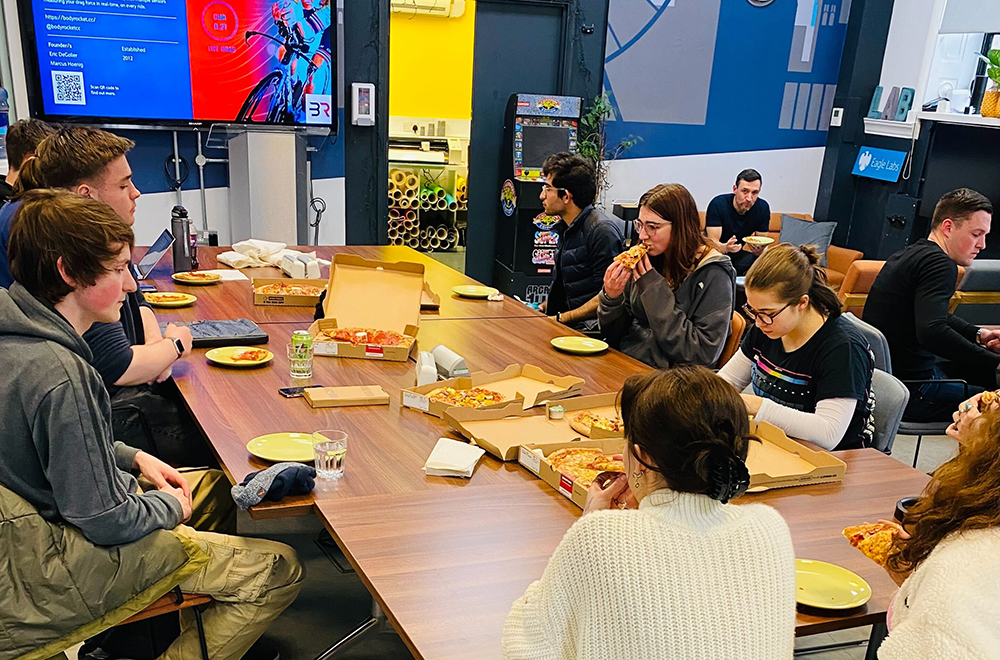This week we got together with Barclays to run a free ‘Understanding Finances’ workshop for local students. As we tucked in to pizzas, we discussed what young people need to know about money and finances before they start work, apprenticeships, or university.
In the 2022-3 Young Persons’ Money Index, a report from the London Institute of Banking and Finance, found that
- 82% of young people want to learn more about money and finance in school
- The cost of living crisis has led to 70% of young people feeling anxious about money, rising to 83% of 17-18 year-olds
- 68% say they get most of their financial understanding and knowledge from their parents.
Managing money can be a challenge but it’s important for young people to develop good financial habits early on to avoid debt, build savings, and achieve your financial goals. We’ve gathered some general advice from around the web on what to start thinking about and where to get advice when getting to grips with your personal finances.
If you’re a student, a good place to start is Martin Lewis’s Money Saving Expert website which has some excellent information and advice for students.
Barclays Life Skills is useful with tips on CV writing, managing money, help applying for jobs and more.
Create a budget and stick to it
A budget will help you keep track of your income and expenses and ensure that you are spending within your means. Start by making a list of all your income sources, such as your salary, part-time job, or student loan. Next, list all your outgoings, including rent, bills, food, transport, entertainment, and other expenses. Once you’ve a clear picture of your finances, you can allocate your money to different categories and set spending limits for each. There are plenty of budgeting apps available that make budgeting really simple. When you can clearly see whether you’re on track, it’s a real incentive to continue. Take a look at this useful piece on budgeting apps on Money for the Masses website.
Build an emergency fund
One of the most important financial goals you should have is to save for a rainy day. This is a savings account that you can tap into in case of unexpected expenses or emergencies, such as increased bills or repairs. Most advise that it’s a good idea to have at least three to six months’ worth of living expenses saved up in an emergency fund. To start building your emergency fund, you can set aside a certain percentage of your income every month and put it into a high-interest savings account. You can compare savings accounts at comparison sites such as Money Supermarket or Compare The Market.
Get professional advice
If you’re struggling with your finances or need help with specific financial goals, it’s always a good idea to seek professional advice. Try MoneyHelper (a free UK government-backed service) and charity Citizens Advice.
A big thanks to the brilliant team at Barclays for an enlightening workshop.
The information provided in this blog post is for general educational purposes only and should not be considered as financial advice. While we strive to provide accurate and up-to-date information, it’s important to note that everyone’s financial situation is unique, and you should always seek professional advice before making any decisions.

